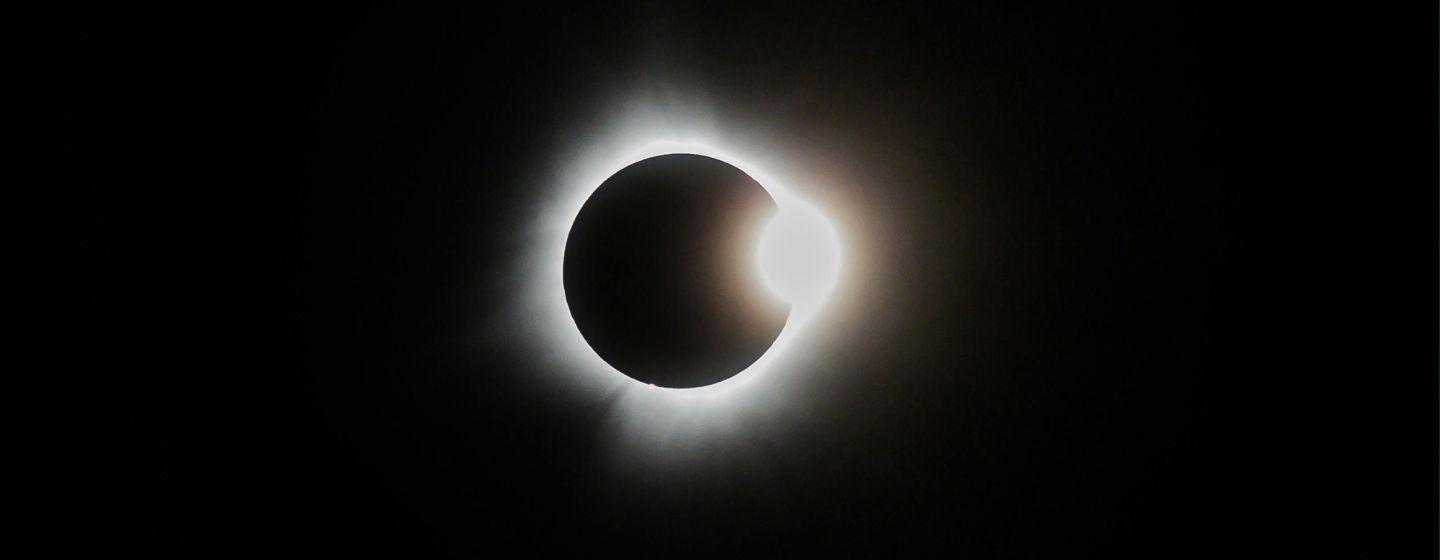Why Do Animals Get Stressed During Eclipses?


April’s total solar eclipse may be in the history books and etched forever in the memories of those who were in the path of totality, but scientists are only now beginning to understand the data they collected during the event.
Adam Hartstone-Rose, a biology professor at NC State, led a group of 40 researchers to the Fort Worth Zoo in Texas to study the behavior of more than three dozen different species during the eclipse. Their new observations were built on research conducted during the 2017 eclipse.
Hartstone-Rose’s work is groundbreaking—until the 2017 study, the only research of animal behavior during an eclipse was conducted in 1932.
“What’s great about being a scientist is that you are constantly surprised,” Hartstone-Rose told NC State’s News Service. “Part of the scientific method is essentially going out and seeking answers and finding the unexpected.”
The team watched a few dozen mammal, bird and reptile species at the zoo the day before the eclipse, for several hours before the eclipse, during totality (when the Moon was fully covered by the Sun) and then after the eclipse to see if the animals returned to normal behavior.
“The amazing thing is, and what we really confirmed this last time, is that animals essentially all universally have the same reaction, which is they behave as if it becomes evening,” Hartstone-Rose told NPR. “The majority of the animals at the zoo in Fort Worth, they get let in in the evening. They go into an indoor enclosure.”
According to Hartstone-Rose, an entire troop of gorillas even rose in unison and headed for the door to their enclosure.
“And when that door wasn’t open, they got stressed out and they were looking around wondering, maybe ‘were we left out when we shouldn’t have been?’ Or ‘did they forget to get us our evening meal?’” said Hartstone-Rose.
The group also observed Aldabra giant tortoises standing up on their hind legs and pushing the closed door to their evening barn so hard that they bent the door frame.
This isn’t the first time Hartstone-Rose has researched animal behavior during totality.
During the 2017 eclipse, Hartstone-Rose was a professor at the University of South Carolina. In response to the public’s questions about how animals would react to the eclipse, officials at the Riverbanks Zoo and Garden in Columbia, South Carolina, asked him to organize a study.
He trained researchers and then assigned them to observe 17 mammal, reptile and bird species during the eclipse. The team watched giraffes suddenly begin galloping, Siamang apes start to make different vocalization patterns and adult flamingos grouping around their chicks to protect them.
“I didn’t think the eclipse was going to be cool. I didn’t think the animals were going to have any reaction,” Hartstone-Rose told NC State’s News Service. “I’m proud to say I was completely wrong on both counts. Because the eclipse was amazing, and most of the animals did amazing things.”
For the new eclipse study, the team watched some of the same animals as in 2017. This time around, however, they also observed relatives of the original animals, including species of gibbons, orangutans and pygmy chimpanzees.
The new observations confirm the findings from the earlier eclipse. At the moment of totality, when the sky grew dark, the animals began their regular evening routines as if nightfall had arrived.
For nocturnal animals, that meant increased activity. For diurnal animals, that meant a nap, heading indoors to sleep or getting dinner.
But when daylight returned, animals resumed their normal activity.
“Animals get a little bit stressed out if they are in a space that maybe they feel like they shouldn’t be in,” said Hartstone-Rose. “So those species that are supposed to be let in for the evening, or if they feel like they’ve missed a meal, then the way that we interpreted it is, it’s like turning the stress dial up to like a level one or two.”
It turns out people also turn up their stress.
“There is seemingly really strong evidence that animals that exhibit anxiety during an eclipse are anxious not because of the eclipse itself, but because of the human reaction to the eclipse,” Hartstone-Rose told NPR.
During the 2017 eclipse, the South Carolina zoo had large crowds with lots of screaming and cheering people. In contrast, the Fort Worth Zoo capped attendance, and it was much calmer.
“We think that the animals are just much more perceptive of our own emotionality during an eclipse than we previously, sort of, gave them credit for.”